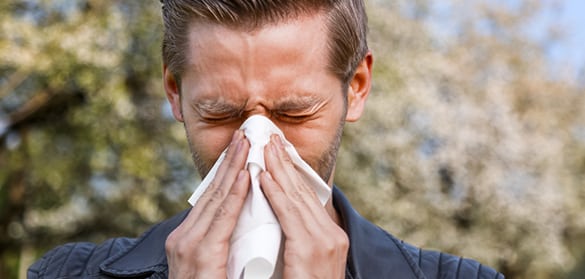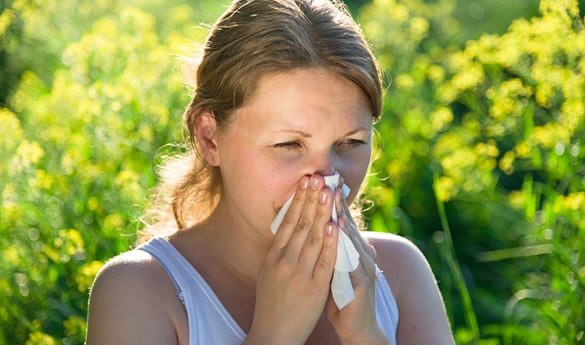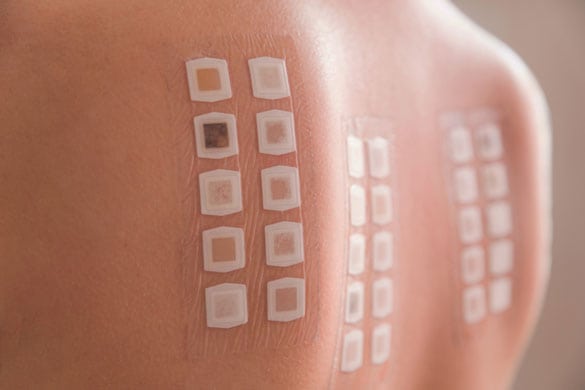
Allergies affect more than 50 million Americans each year.
Allergies can be seasonal in nature, linked to substances found in food, or associated with specific animals, insects, indoor or outdoor irritants, or household products.
- Reactions when exposed to allergens can range from mild to life-threatening.
- It’s only when the likely source of the reaction is determined that proper steps to minimize exposure and control symptoms can be taken.
What Causes Allergies?
The sixth leading cause of chronic illness in the United States, allergies are the result of an immune system reaction. Allergies develop when the immune system mistakes a substance as a foreign invader and reacts to it by producing antibodies. These antibodies stimulate the production of histamine and other chemicals, which is what causes the various symptoms experienced. Airborne allergens like pollen, dander, mold, and dust mites are the most common triggers. For other individuals, reactions may be triggered by eggs, shellfish, peanut oil, and other foods, penicillin-based antibiotics and similar medications, or materials such as latex.

Potential Symptoms
Approximately 20 million adults and 6 million children in the U.S. have hay fever (allergic rhinitis), one of the most common allergies likely to bring patients to an ear, nose, and throat specialist. It’s not unusual for patients with hay fever or similar indoor/outdoor allergies to be affected by multiple irritants. Sufferers may experience:
- Cold-like symptoms (e.g., stuffy or runny nose)
- Watery, red, or swollen eyes
- Itching sensations around the nose, eyes, or roof of the mouth
Food allergies may cause face, nose, or throat swelling or a tingling sensation in the mouth. Drug allergies sometimes cause a rash on various parts of the body or facial swelling. Food and drug allergies may also cause a severe reaction known as anaphylaxis that typically requires immediate medical attention. Some patients with certain allergies also have asthma, which is related to environmental allergens.
How Allergies are Diagnosed and Treated
An ENT specialist typically starts by asking questions about symptoms to get a general idea of where to focus diagnostic efforts. With skin allergies, a skin test is done. An allergen-specific immunoglobulin E (IgE) test checks for the presence of certain antibodies produced by the immune system in response to allergens. Additional testing may be done if it’s suspected that your symptoms could be related to a different condition.
Avoidance of known triggers is a common treatment recommendation for most allergies. Patients who react to outdoor allergens like pollen, for example, may be advised to check daily pollen counts during warmer months before going outside. Patients may also respond well to treatments that involve:
- Nasal sprays, antihistamines, and other OTC or prescription medications
- Allergen immunotherapy (“allergy shots”) with gradually increasing doses of what you are allergic to so your immune system eventually accepts that allergen
- Emergency epinephrine
- Lifestyle adjustments to improve immune system health
If you are experiencing allergies and not seeing meaningful relief with over-the-counter medications and other attempts at self-treatment, you may be referred to an ear, nose, and throat specialist for a thorough evaluation.
There is no cure for allergies. However, most people are able to reach a point where related symptoms are manageable and reasonable steps can be taken to avoid known allergy triggers like pollen, dust, and certain food ingredients.




